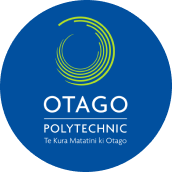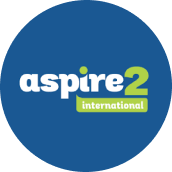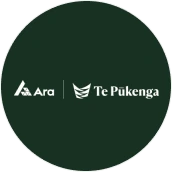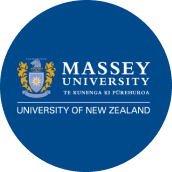A comprehensive guide to
 Study in New Zealand
Study in New Zealand
Explore institutions, cost of living, and scholarships to study in New Zealand.
New Zealand is an emerging study abroad destination with an excellent education system and internationally accredited qualifications.
50 +
Academic Institutions
2100 +
Programs
Why study in New Zealand?
Outstanding Educational Opportunities In New zealand For Indian Students
Advanced Teaching Methods

Inspired by the British education system, New Zealand offers an immersive learning experience supported by various programs and courses.
Abundant Research Opportunities

The country offers ample research opportunities with highly experienced faculty, well-equipped laboratories, latest technology and equipment.
Affordable Education Cost

The education expenses on similar structured programs and qualifications in New Zealand are much lower than in other popular study abroad destinations.
Beautiful Environment

New Zealand boasts a wonderful environment with beautiful landscapes, including hills, beaches, volcanoes, and snow-capped mountains. It’s a perfect place to live a healthy and active lifestyle.
Immersive Culture

The country has a rich cultural heritage celebrating numerous traditions. It is also a safe place for International students and is known for its social tolerance and politically stable environment.
Work-study options

New Zealand allows international students to work 18-20 hours a week while studying and full-time during scheduled breaks.
Intakes to Study in New Zealand
It is important to learn about the intakes available in New Zealand before applying for study. New Zealand's universities and colleges offer admissions for two primary intakes: February and July. Each intake has its unique advantages and limitations.
| Intakes in New Zealand | Availability of Programs | Application Deadline | Duration |
|---|---|---|---|
| February intake (Major & the most popular intake) |
All Programs | November – December of the previous year | February - June |
| July intake | Majority Programs | May- June | July - November |
Learn more about intakes in New Zealand
Study levels and disciplines
Types Of Qualifications in New Zealand

Undergraduate Programs
Graduate Certificate/Graduate Diploma Courses (Level 7)
Bachelor’s Degrees (Level 7)
Diploma Courses (Levels 5-6)
Certificate Courses (Levels 1-4)

Postgraduate Programs
Master’s Degrees (Level 9)
Postgraduate Certificate/Postgraduate Diploma Courses (Level 8)
All Universities
Popular Universities to Study in New Zealand

Otago Polytechnic - Dunedin Campus
Otago, New Zealand • 45 Programmes
Tuition Fee : NZD 19030 - 28220 / year

Navitas Group - The University of Waikato College
Hamilton, New Zealand • 27 Programmes
Tuition Fee : NZD - / year

Unitec Institute of Technology - Waitakere Campus
Auckland, New Zealand • 1 Programmes
Tuition Fee : NZD 19950 - 24000 / year

The University of Waikato - Hamilton Campus
Hamilton, New Zealand • 355 Programmes
Tuition Fee : NZD 25900 - 38960 / year

Eastern Institute of Technology - Hawke Bay Campus
Hawkes Bay, New Zealand • 45 Programmes
Tuition Fee : NZD 18500 - 25200 / year
Enquire Now
Not sure what you are looking for? Fill in the details to get a call-back.
Cost of Studying in New Zealand
Tuition fee and scholarships
International students planning to study in New Zealand should plan their budget with knowledge of cost of studying. The cost varies based on the location of an educational institution and the course chosen.
NZD 17,000 to NZD 25,000
UG Diploma/Certificate Courses
NZD 20,000 to NZD 30,000
PG Diploma/Certificate Courses
NZD 28,000 to NZD 40,000
Undergraduate Degree Courses
NZD 30,000 to NZD 50,000
Postgraduate Degree Courses

Scholarships
Top colleges and universities in New Zealand offer scholarships, grants, and bursaries to help international students bag the best of educational opportunities in New Zealand.
Study Visa for New Zealand
Any international student who wishes to pursue higher education in New Zealand must apply for a New Zealand Student Visa with an estimated application fee of NZD 330. The visa permits full-time study in an approved course. Students can work 20 hours a week during the academic year and full-time during scheduled breaks.
International students on successful completion of a degree level 7 or above qualification can stay back for 3 years on a post-study work visa in New Zealand. There are also certain requirements that students must meet to apply for a visa:
- Genuine Intentions: Proof that the student intends to study and return home after completing their studies.
- English Proficiency: Proof of English language skills through an accepted test like IELTS, PTE & TOEFL.
- Financial Capability: Proof that the student has sufficient funds to cover tuition fees and living expenses.
- Health and Character Requirements: Medical certificates and police clearances to ensure the student meets health and character standards.
Know more about the documents required to apply for a New Zealand study visa
Cost of Living in New Zealand
Living Expenses in New Zealand
International students must understand the factors that influence the cost of living in New Zealand. Students should save aside finances for their basic daily necessities and unexpected costs. Apart from tuition and insurance costs, expenses such as accommodation, food, transportation, phone bills, internet usage, and entertainment are crucial in deciding the cost of living in New Zealand. The table below provides the approximate estimates of monthly expenses for an international student in New Zealand:
| Expenses | Average Monthly Cost (Approx. NZD) | Average Monthly Cost (Approx. INR) |
|---|---|---|
| Accommodation (shared apartments) | 800 - 1500 | 40,000 - 76,000 |
| Travel | 60 - 120 | 3,000 - 6,100 |
| Food | 100 - 220 | 5,000 - 11,500 |
| Entertainment | 180 - 240 | 9,000 - 12,100 |
| Internet | 85 - 90 | 4,200 - 4,800 |
| Stationery | 10 - 15 | 500 - 750 |
| Utilities (Electricity, cooling, water, heating, garbage) | 230 - 300 | 11,500 - 15,200 |
Job Prospects to Study in New Zealand
New Zealand allows international students to work part-time for up to 20 hours a week during their studies and full-time during breaks. This will enable students to gain valuable work experience and immerse themselves in the local culture. Post the completion of the course the country offers some of the highest paying job for international students.
The table below highlights some of the popular job sectors and roles available to students after completing their courses in New Zealand:
| Job Sector | Job Role |
|---|---|
| Anaesthetists | Anaesthetist |
| Commerce and Finance | Financial Analyst, Banker, Investment Advisor |
| Dentistry | Dentist, Orthodontist, Periodontist |
| Engineering | Civil Engineer, Mechanical Engineer, Electrical Engineer |
| Medical and Healthcare | Surgeon, Doctor, Physiotherapist, Nurse |
| IT Architects | IT Architect, System Designer, Network Architect |
| Legal Professions | Lawyer, Solicitor, Barrister |
| Mining Engineers | Mining Engineer, Geological Engineer, Environmental Engineer |
| Oil and Gas Engineers | Petroleum Engineer, Drilling Engineer, Reservoir Engineer |
| Pharmacists | Pharmacist, Clinical Pharmacist, Hospital Pharmacist |
| Pilots | Commercial Pilot, Airline Pilot, Flight Instructor |
| Software Development (IT) | Software Developer, Web Developer, Application Developer |
Study in New Zealand – FAQ
The academic year in New Zealand is split into two semesters starting in February and July. Master’s courses begin in February or July.
Popular English Language Proficiency Exams
Blogs and Articles
Study in New Zealand Blogs & Articles
Master of Information Technology in New zealand
Updated on • Sep 16,2024 04:55 PM IST • New Zealand
Public Universities in New Zealand for International Students
Updated on • Sep 11,2024 05:29 PM IST • New Zealand
Student Accommodation in New Zealand
Updated on • Sep 06,2024 05:01 PM IST • New Zealand
Top Colleges & Universities in Christchurch for Indian Students
Updated on • May 02,2024 01:55 PM IST • New Zealand
Study in New Zealand without IELTS
Updated on • Apr 11,2024 05:36 PM IST • New Zealand
New Zealand IELTS Band Requirements
Updated on • Mar 20,2024 05:09 PM IST • New Zealand
New Zealand Scholarship for International Students
Updated on • Mar 12,2024 12:33 PM IST • New Zealand
Minimum IELTS Scores to Study in New Zealand Universities
Updated on • Mar 08,2024 01:48 PM IST • IELTS
Universities Accepting Backlogs in New Zealand
Updated on • Feb 27,2024 01:06 PM IST • New Zealand
Exams to Study in New Zealand for International Students
Updated on • Feb 15,2024 01:48 PM IST • New Zealand
Demanding Courses in New Zealand for International Students
Updated on • Jan 31,2024 11:24 AM IST • New Zealand
Cost of Living for International Students in New Zealand
Updated on • Jan 30,2024 11:34 AM IST • New Zealand
Highest Paying Jobs in New Zealand for International Students
Updated on • Sep 24,2024 04:44 PM IST • New Zealand
New Zealand Student Visa: Eligibility, Requirements, Documents & Types of NZ Study Visa
Updated on • Sep 21,2024 04:44 PM IST • New Zealand
How does the New Zealand Education System work?
Updated on • Oct 16,2023 04:18 PM IST • New Zealand
How to open a Bank Account in New Zealand as an International Student?
Updated on • Oct 16,2023 12:39 PM IST • New Zealand
MBA in New Zealand: Universities, Eligibility, Types, Documents and Job Opportunities
Updated on • Mar 27,2024 05:13 PM IST • New Zealand
Statement of Purpose (SOP) for New Zealand Student Visa: Format, Guidelines & Writing Tips
Updated on • Mar 08,2024 01:33 PM IST • SOP
Masters (MS) in New Zealand: Eligibility, Scope and Top Colleges for Indian Students
Updated on • Jul 11,2023 05:00 PM IST • New Zealand
Intakes in New Zealand 2025: Timeline, Courses, Universities & Requirements
Updated on • Sep 24,2024 05:08 PM IST • New Zealand
Unsure of your eligibility? Verify it here.
Take our quick eligibility check and find out all the available courses for you.


















